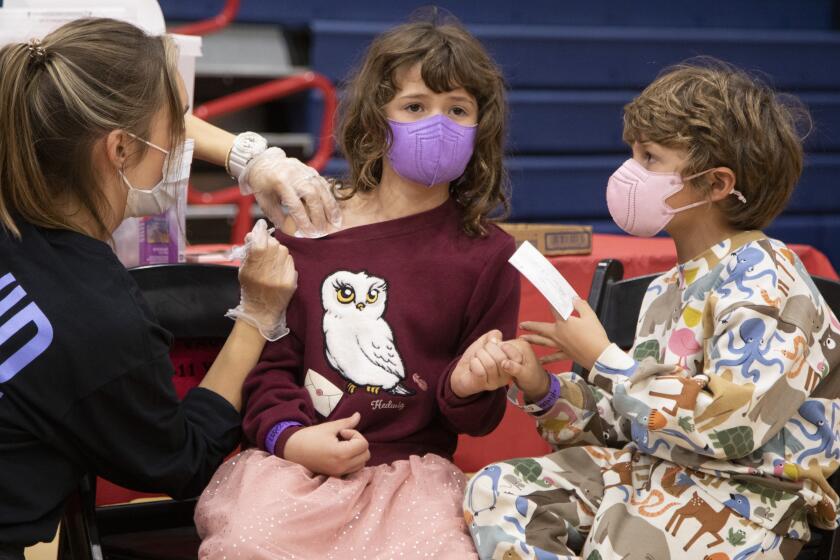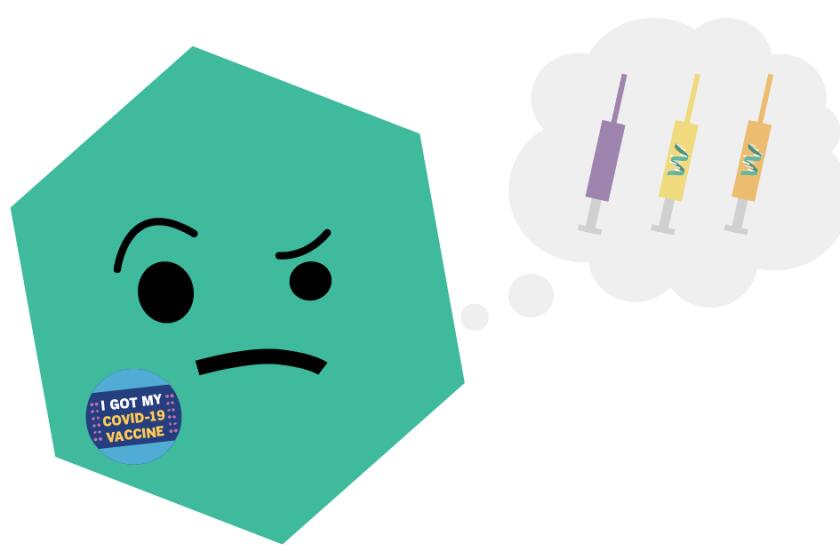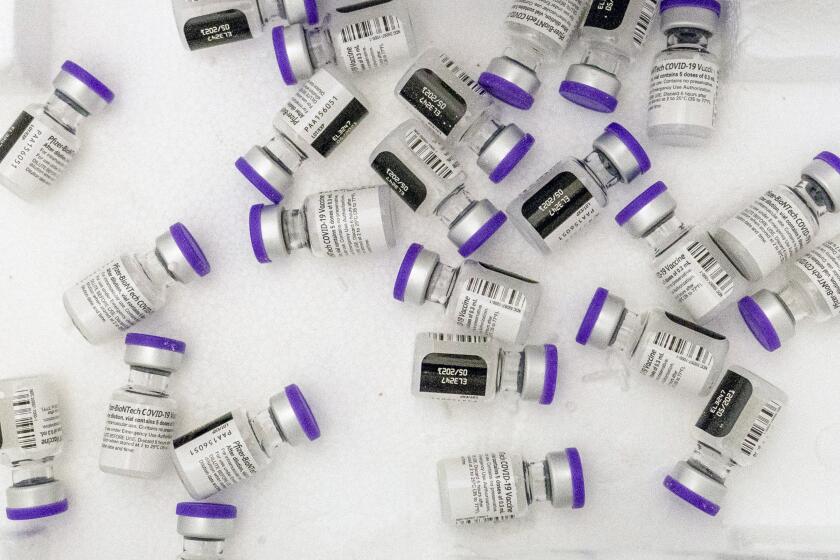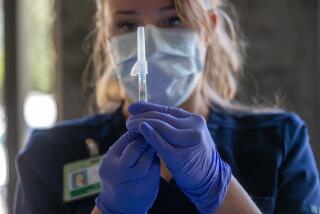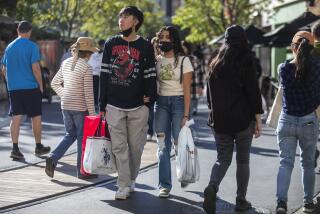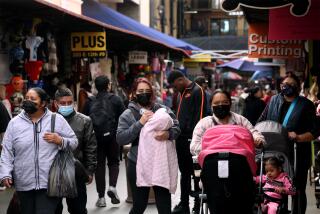‘Winter is coming,’ Gov. Newsom warns as California’s COVID threat persists
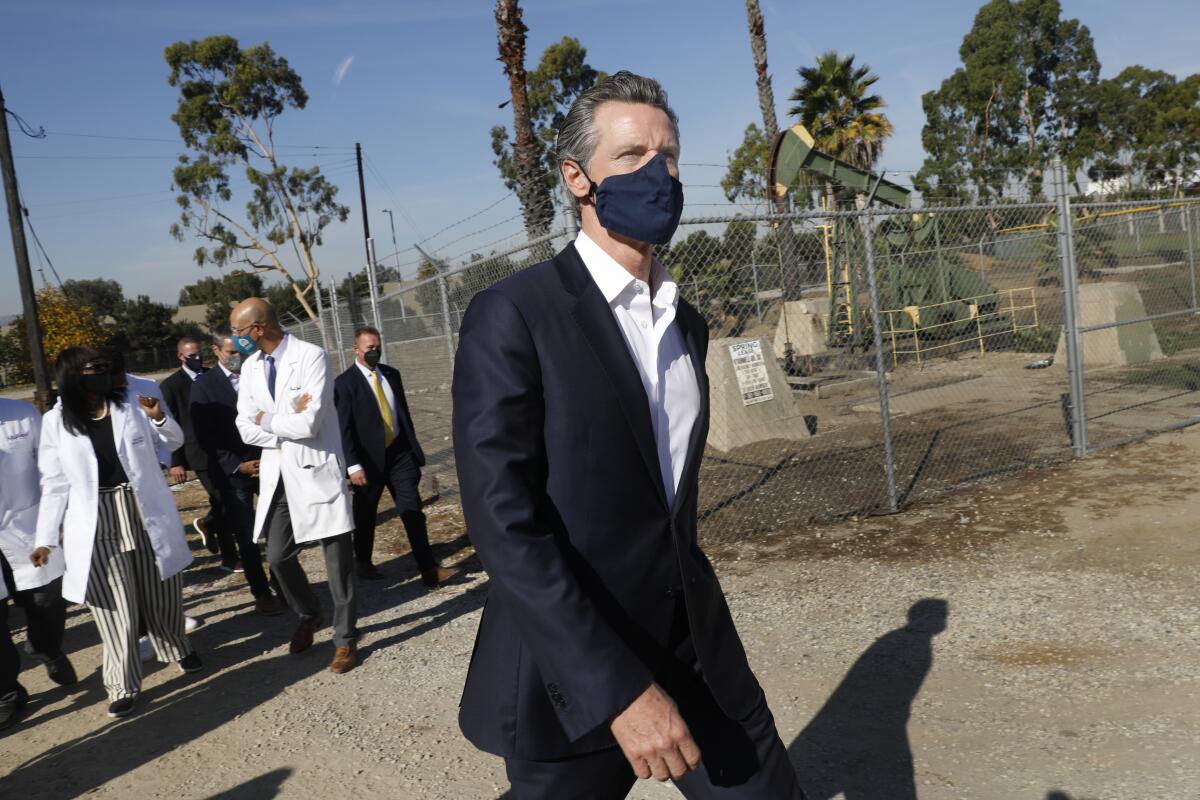
Gov. Gavin Newsom turned to a familiar phrase Tuesday to issue a warning about the trajectory of the COVID-19 pandemic in California.
“Winter is coming,” he said during remarks at the California Economic Summit in Monterey. “COVID is not taking the winter off.”
Newsom is far from the first official to cast a wary eye on winter’s approach and express concern about what it might mean for the state.
California has yet to shake off the last vestiges of the months-long surge of the Delta variant, and there are indications that conditions are heading in the wrong direction in some parts of the state.
COVID hospitalizations go up in Riverside, San Bernardino and Fresno counties, where vaccination rate is low; and in Orange County, where it’s higher.
“Last week, we literally were planning out our winter surge strategy — pre-positioning assets in anticipation of what’s going to happen in the next few weeks; making sure we have staffing, not only within the state, but that we have organized and potential staffing that we’ll have to bring in from out of the state,” Newsom said.
He added: “I don’t want to tell you that, because I don’t want it to be true. But the data bears this out.”
As Newsom has noted before and reiterated Tuesday, California was in a similar position at this time last year, only to see conditions deteriorate rapidly.
On Nov. 8, 2020, California reported a seven-day average of 6,200 new coronavirus cases a day. One month later, the state was reporting 26,000 new cases a day, and in early January, the number jumped to more than 45,000. Daily reported caseloads didn’t consistently fall back below 10,000 until mid-February.
Current case rates are roughly the same as last year at this time. For the seven-day period that ended Sunday, California was reporting 5,700 new coronavirus cases a day, according to data compiled by The Times.
Statewide, infections and COVID-19 hospitalizations have plateaued following months of decline.
But in some areas with lower vaccination rates, hospitalizations for COVID-19 have risen significantly since mid-October: by 35% in San Bernardino County and 27% in Fresno County. Even in Orange County, where vaccination rates are relatively high, COVID-19 hospitalizations are up by 29% over the same time period.
The San Joaquin Valley is reporting the state’s highest rate of COVID-19 hospitalizations; for every 100,000 residents, the region has 25 people hospitalized with COVID-19, compared with 15 per 100,000 in rural Northern California, 14 in the greater Sacramento area, eight in Southern California and four in the San Francisco Bay Area.
Some experts say it’s concerning when the rate is five or greater.
In Southern California, San Bernardino and Riverside counties are reporting the worst hospitalization rates per 100,000 residents: 15 and 10, respectively. San Diego County is at eight; Orange County, seven; L.A. County, six; and Ventura County, four.
Nearly 72,000 Californians have died from COVID-19, and an average of 61 deaths have been reported daily over the past week.
“With cases ticking up in most parts of the state, we cannot let our guard down, and we cannot underestimate this deadly virus,” Dr. Tomás Aragón, director of the California Department of Public Health and the state’s public health officer, said in a statement Monday.
Already, there are warning signs that cooler temperatures elsewhere in the United States and across the globe may be fueling a resurgence of the coronavirus.
“We know why: because [of] the seasonality to COVID,” Newsom said. “It’s not particularly difficult, after a couple of years, to understand. You see those trends in Europe. You see those trends extend in other parts of the globe. Unfortunately, that’s what’s happening here.”
COVID-19 vaccine boosters are now available. But, they’re only recommended for some people. See if you are eligible here.
Officials and experts largely agree that California is unlikely to experience the same type of surge as last winter, largely because many residents are vaccinated against COVID-19.
Roughly 69% of Californians have received at least one dose, and nearly 63% are fully vaccinated.
However, there are millions of residents statewide who have less protection against the coronavirus. Given the evidence that vaccine immunity can wane over time, officials stress that it’s important for everyone eligible — particularly those who are at high risk of severe COVID-19 symptoms — to get a booster shot.
“We’ve got to keep those boosters up. And we’ve got to be mindful that the job’s not done; you can’t spike the ball,” said Newsom, who in late October got a Moderna booster to his original Johnson & Johnson vaccination.
The request comes amid concern about increased spread of the coronavirus with holiday travel and gatherings.
State data show that unvaccinated Californians continue to be disproportionately affected by the pandemic. Unvaccinated individuals are roughly seven times more likely to get COVID-19, nearly 10 times more like to require hospitalization and 18 times more likely to die than those who are vaccinated.
“Vigilance is our best defense against another challenging COVID-19 winter,” Aragón said. “Get vaccinated if you haven’t yet.”
More to Read
Sign up for Essential California
The most important California stories and recommendations in your inbox every morning.
You may occasionally receive promotional content from the Los Angeles Times.
